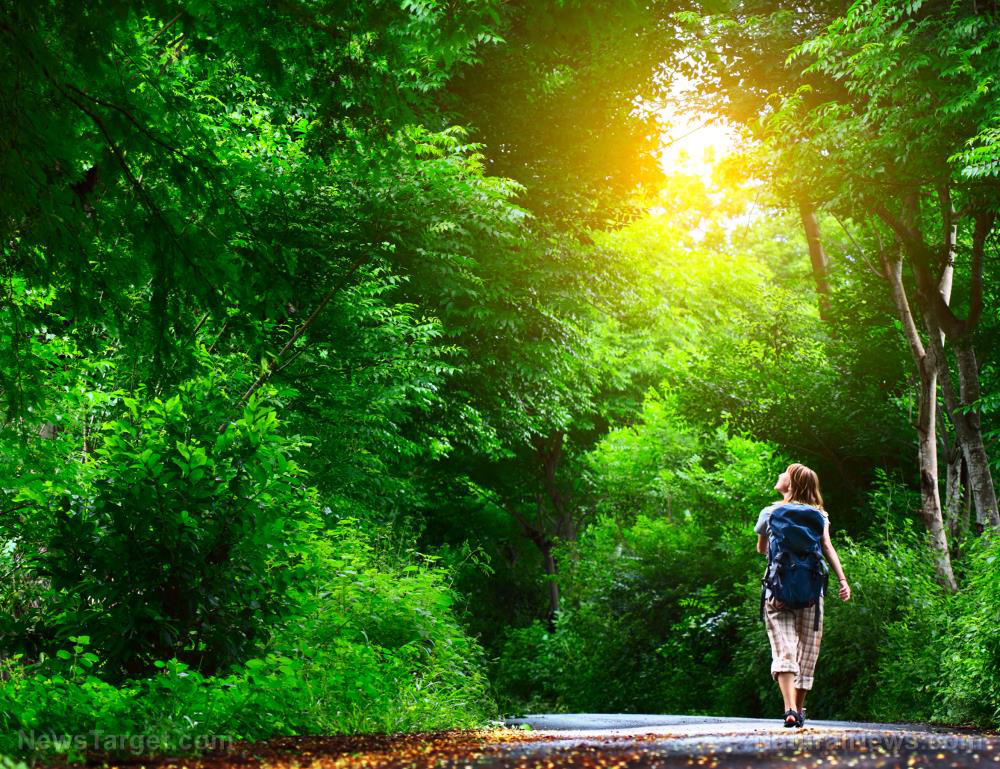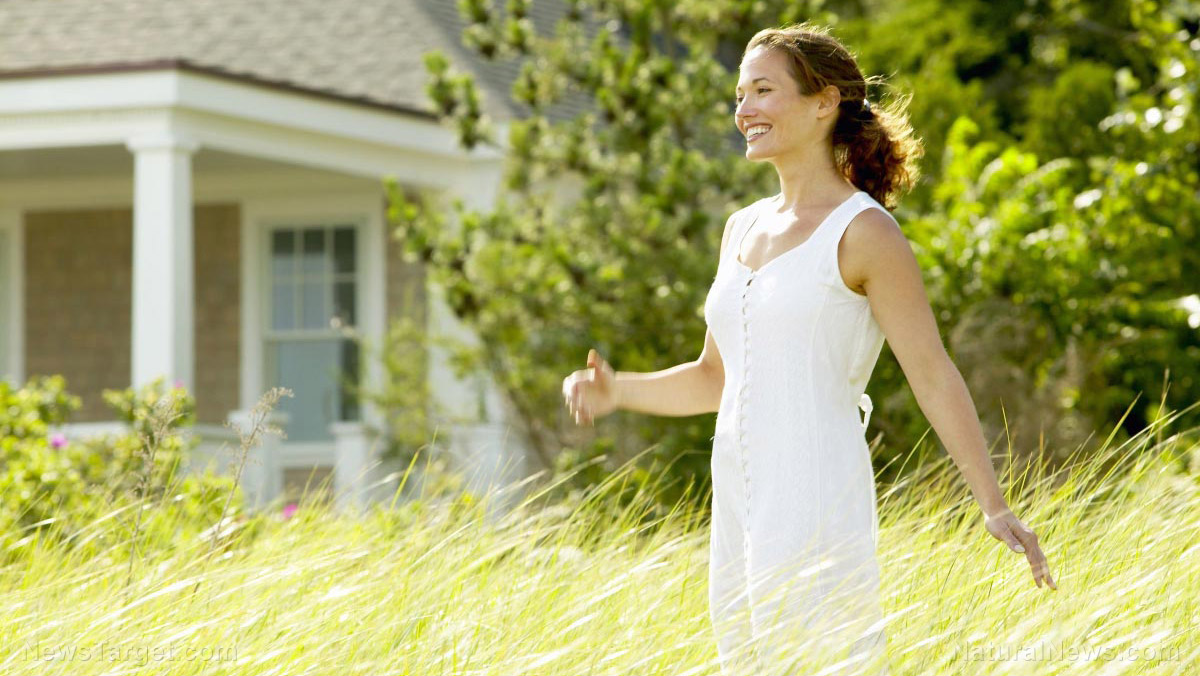Living near Nature may help improve your mental health amid coronavirus pandemic, study suggests
12/09/2020 / By Divina Ramirez

Living near nature might just help mitigate some of the negative effects of the COVID-19 pandemic on people’s mental health, according to a study by researchers from the University of Tokyo (UTokyo).
Published recently in Ecological Applications, it revealed that more frequent use of green spaces, such as parks and forests, and the presence of a green window view from within the home were associated with greater levels of life satisfaction, self-esteem and subjective happiness among adults living in a densely populated urban area.
Overall, the findings suggest that nearby nature may serve as a buffer in reducing the impact of a very stressful event, such as the pandemic, on humans, said Masashi Soga, the study’s lead author and an associate professor at UTokyo’s Graduate School of Agricultural and Life Sciences.
“Protecting natural environments in urban areas is important not only for the conservation of biodiversity, but also for the protection of human health,” added Soga.
A “nature-based” solution
During the first few months of the pandemic, numerous governments worldwide implemented strict lockdown measures and enforced public health policies like social distancing in an effort to stem the spread of COVID-19.
While these measures did help slow the transmission of the coronavirus to some extent, millions of people had to learn to adjust to the drastic changes in their routines, which included coping with the negative effects of the pandemic on their mental well-being.
In fact, recent studies suggest that social distancing guidelines, coupled with the fear of contracting COVID-19, are likely to result in a wide range of mental health issues, from an increased sense of loneliness to depression.
Interestingly, some recent studies found that spending time outdoors increases positive emotions and reduces negative ones. Other studies also showed that people visited green spaces more often during the pandemic. But it remains unclear how proximity to nature affects mental health patterns.
To this end, Soga and his colleagues conducted a survey on 3,000 adults living in Tokyo. The survey quantified the association between five mental health outcomes (subjective happiness, loneliness, depression and anxiety, self-esteem and life satisfaction) and three measures of experiences with nature (green views through windows of the home and frequency and duration of green space use).
When the researchers assessed the responses, they found that experiences with nature around the home and in green spaces can help prevent poor mental health or keep it from deteriorating during stressful times.
In particular, the responses indicated a positive relationship between mental health outcomes (life satisfaction, self-esteem and subjective happiness) and frequency of green space use around the home and green views from within the home. Respondents who reported using green spaces more frequently and lived in homes with green views from windows also showed reduced levels of loneliness, depression and anxiety.
According to the researchers, there are three possible pathways through which green space use promotes better mental health.
The first is the health benefits of direct interactions with nature. Spending time in nature gives a person access to multi-sensory experiences, such as smelling flowers or listening to birds, which may help improve his or her mental health status.
Second, green space use is likely to encourage people to exercise. Exercising is considered beneficial for mental health, too. Third, green spaces also provide avenues for members of local communities to interact.
But even if social distancing guidelines limit these interactions, seeing other people or signaling to others from a distance may already be beneficial for people’s mental health. The researchers are also inclined to believe the three pathways work synergistically.
Furthermore, the responses indicated that people with green views from their windows reported better mental status for all five of the mental health measures considered than those who used greenspaces but had no green views.
This suggests that even less immediate experiences with nature, like looking out the window to trees, can have beneficial effects on mental health comparable to those of more immediate and direct experiences with nature.
Overall, the results suggest that promoting experiences with nature can be used as a “nature-based solution” for better public health at a time when people are under higher levels of stress and are confined within their homes.
“Prescribing” nature
With the pandemic showing no signs of letting up, restrictions are expected to stick around for a while. During extraordinary times like these, it is important to take steps to prevent stress from affecting your mental health.
As Soga and his colleagues found, just looking out the window to trees, grass and shrubs can be restorative. It would also help to go down to a local park or wooded area and spend a few minutes there to relieve stress and reduce anxiety.
Be mindful of the breeze and take a moment to notice the colors of flowers or the smell of leaves. Listen to the sound of rushing water or twittering birds. Jog through a tree-lined street in the morning or take a short stroll around the neighborhood after lunch.
As the UTokyo study shows, such experiences with nature can confer immense benefits on one’s mental health. (Related: Forest bathing: Spend time in nature to reduce your stress.)
Read more articles about the positive effects of Nature on human health at Environ.news.
Sources include:
ESAJournals.OnlineLibrary.Wiley.com
Submit a correction >>
Tagged Under:
beatdepression, coronavirus, covid-19, green space, mental health, natural health, natural medicine, nature, outbreak, pandemic, research
This article may contain statements that reflect the opinion of the author
RECENT NEWS & ARTICLES
Natural.News is a fact-based public education website published by Natural News Features, LLC.
All content copyright © 2018 by Natural News Features, LLC.
Contact Us with Tips or Corrections
All trademarks, registered trademarks and servicemarks mentioned on this site are the property of their respective owners.






















